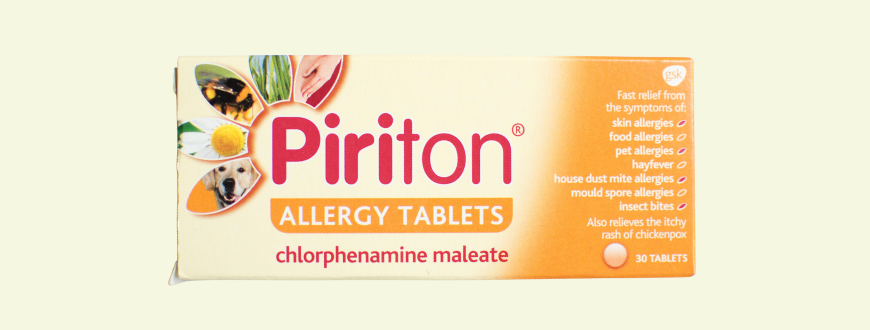
Temporary Supply Shortages of Piriton and Piriteze Tablets
We are aware of the recent reports in the press about a shortage of Piriton and other chlorphenamine maleate-based hay fever medications. The following statement has been issued by GSK who produce and distribute Piriton in the UK:
“Due to the reduced availability of certain active ingredients across the industry, we can confirm GSK Consumer Healthcare is experiencing temporary supply shortages of Piriton and Piriteze tablets. We appreciate that the demand for these medicines will be high over the coming months and are working hard to improve availability as soon as possible.”
Allergy UK’s advice is not to worry, there are a number of alternative antihistamine products in different preparations including syrup (elixir) and tablet forms.
In line with current guidelines, Allergy UK’s recommendation is to use a non-sedating antihistamine (or second generation antihistamine) over the age of 2 years, for mild to moderate hay fever symptoms. Non-sedating antihistamine options include loratadine, desloratadine, cetirizine, levocetirizine, fexofenadine, acrivastine, ebastine, bilastine, mizolastine. We do not recommend sedating antihistamines (or first generation antihistamines) such as chlorphenamine maleate, promethazine hydrochloride, diphenhydramine and hydroxyzine for the management of hay fever symptoms over the age of 2 years, as they can cause drowsiness, and have been found to impair driving, work, or school performance even in people who do not feel drowsy.
We are not aware of any supply issue warning for syrup (elixir) forms of antihistamines, however non-sedating antihistamines are not licensed for use in infants under 2 years of age and the recommendation is to give chlorphenamine maleate for symptoms of an allergic reaction as per instructions in children under 2 years unless otherwise instructed by your health care professional.
We advise you to seek guidance from your pharmacist or GP to get the best advice on the right medication for you, especially if you; are seeking advice for a child as many antihistamine products may not be suitable for young children, have any other medical conditions, take any other medicines or if you are unsure your symptoms are hay fever related, before trying a new medication including antihistamines.
For more information on hay fever, including tips on how to help manage your symptoms.

 Helpline
Helpline